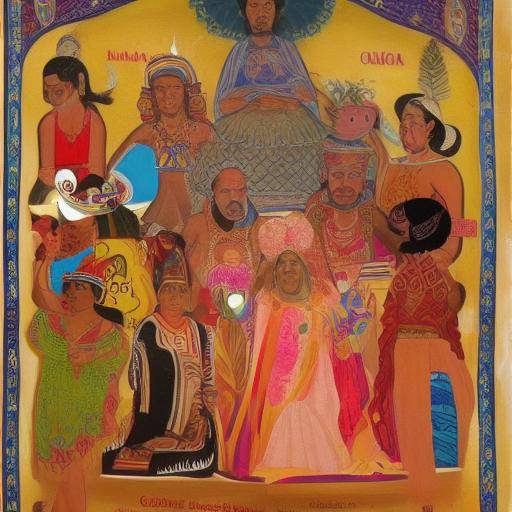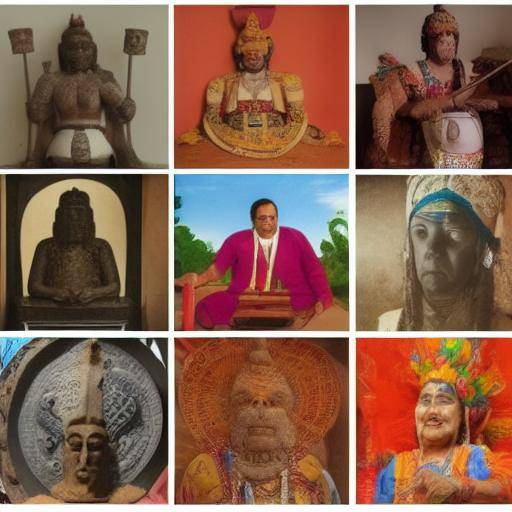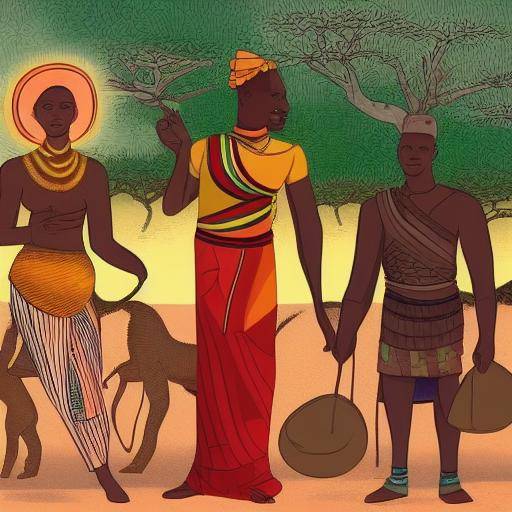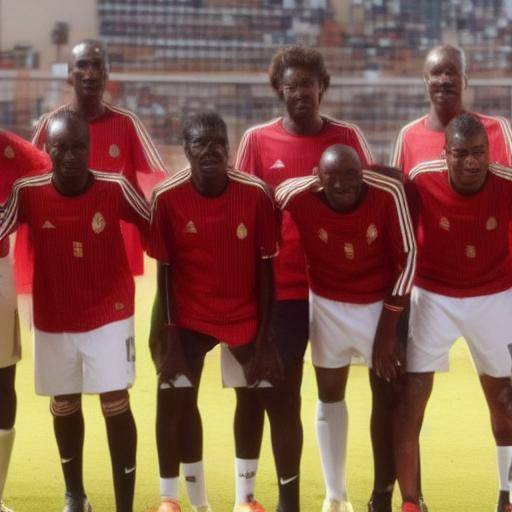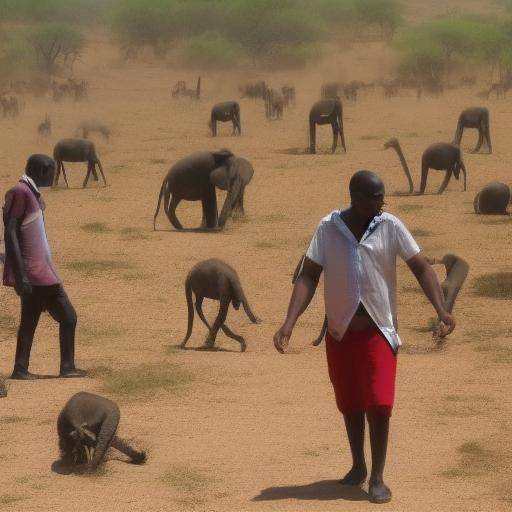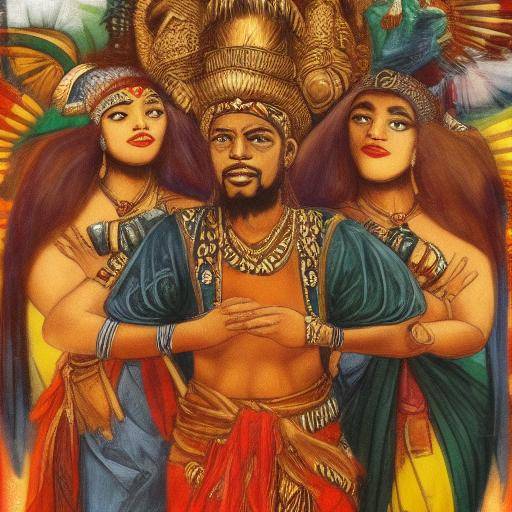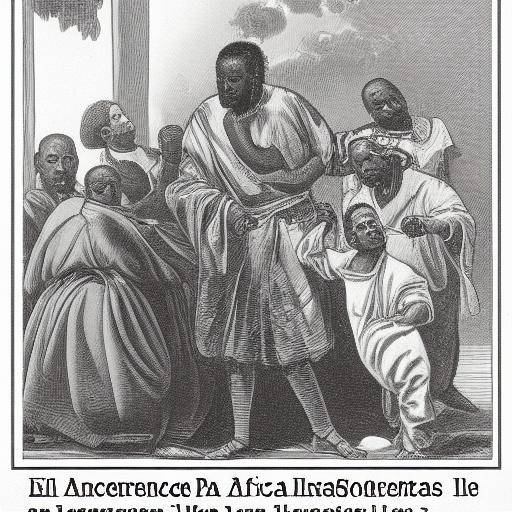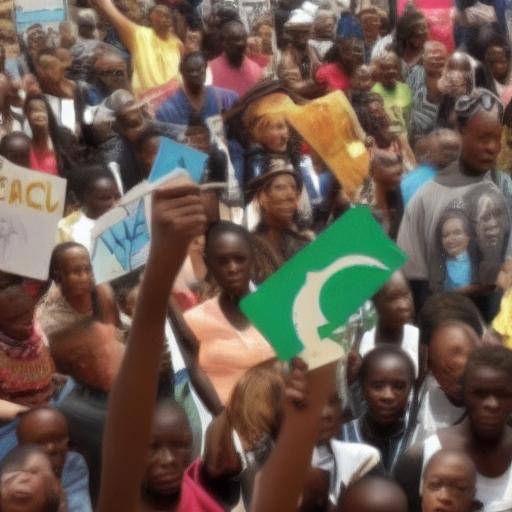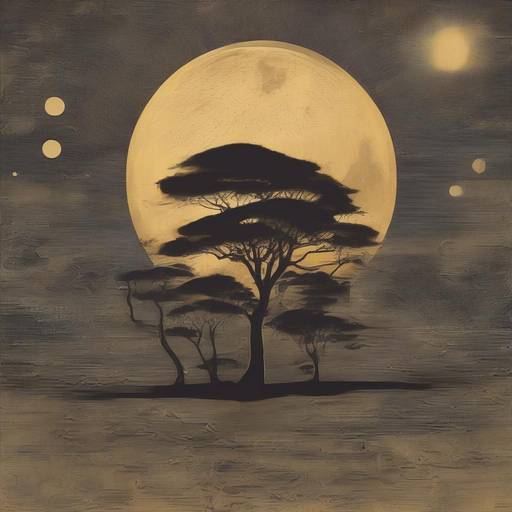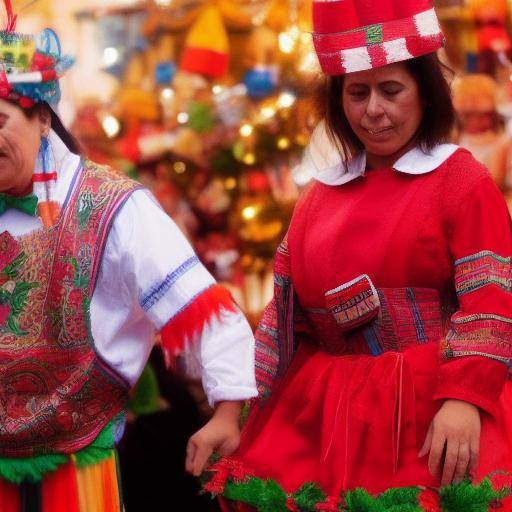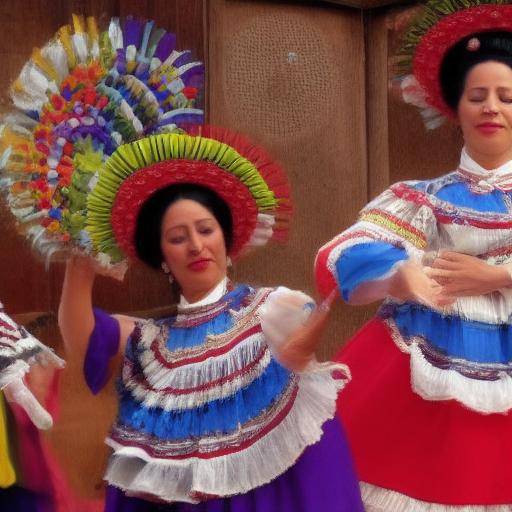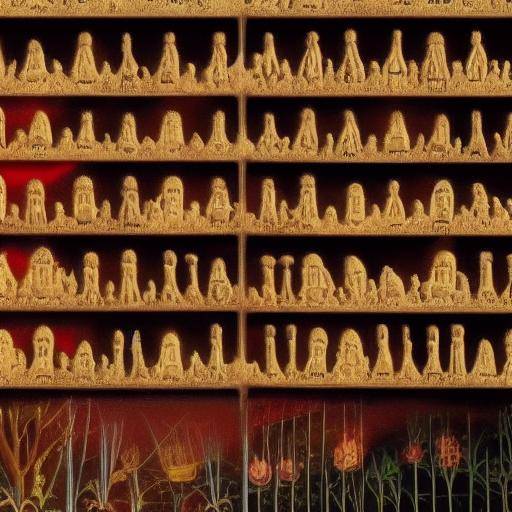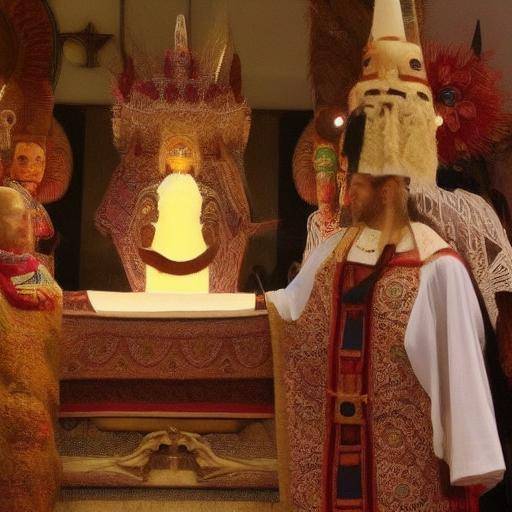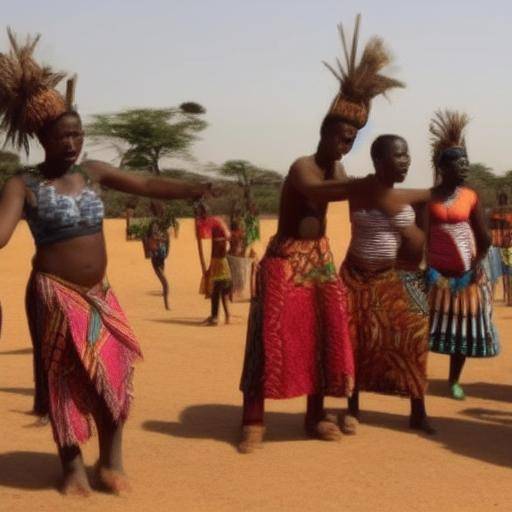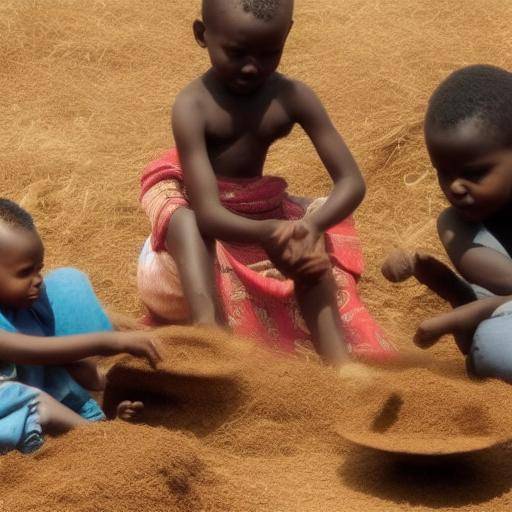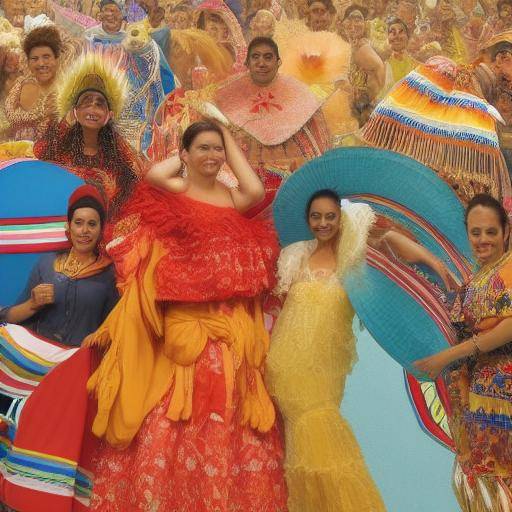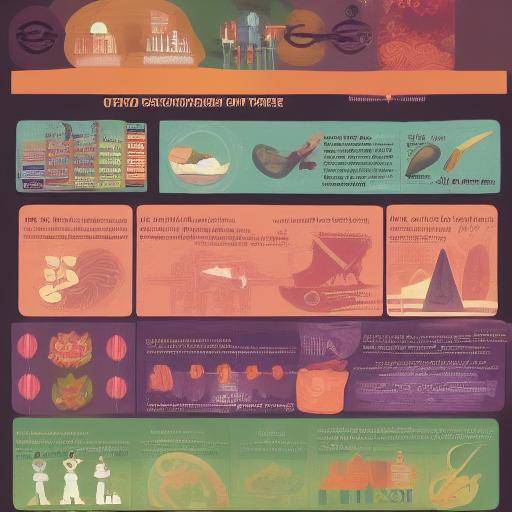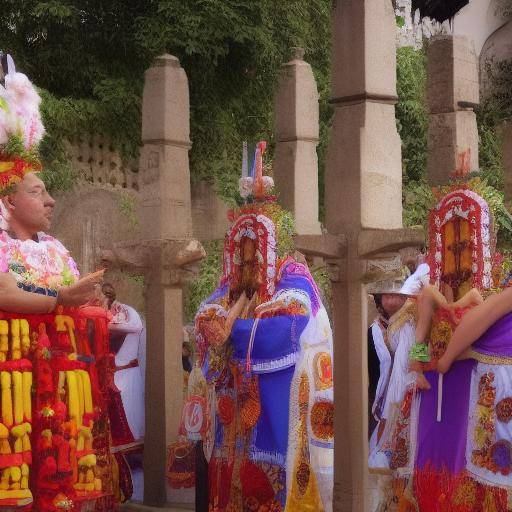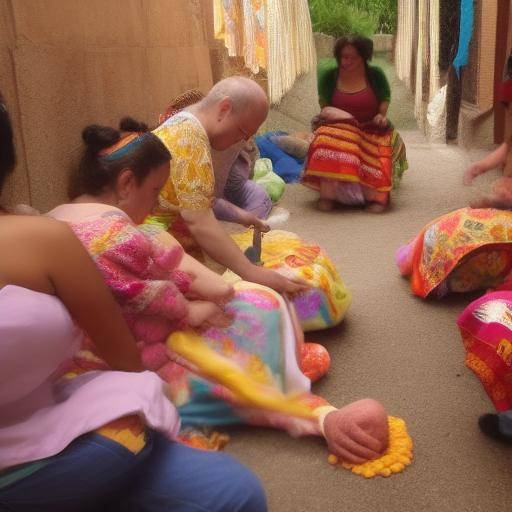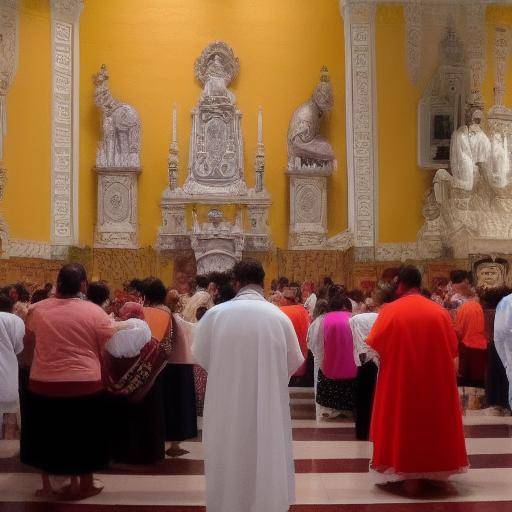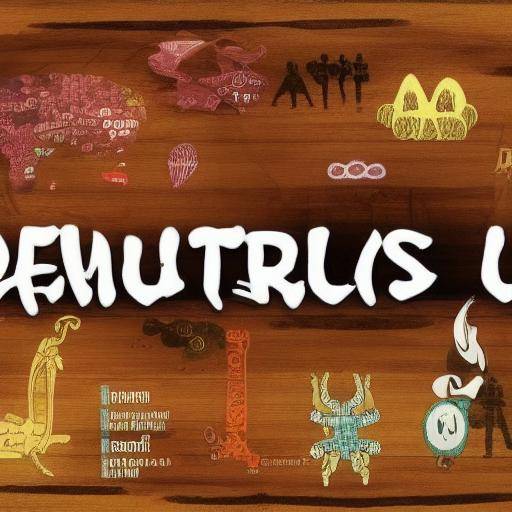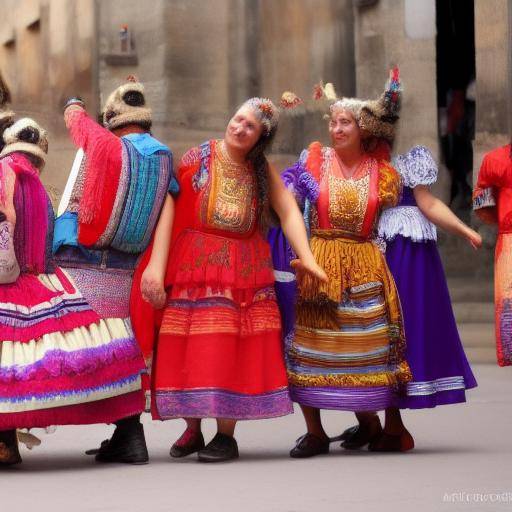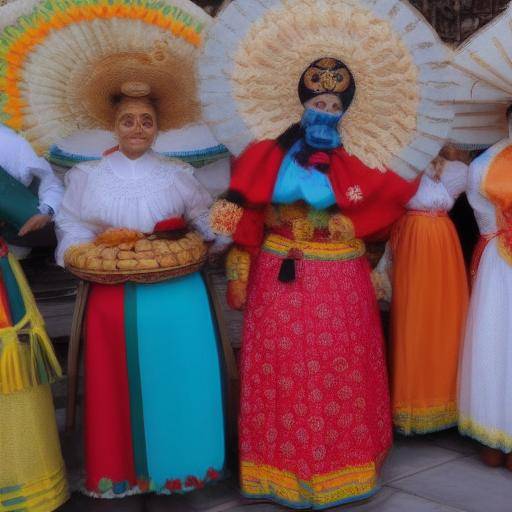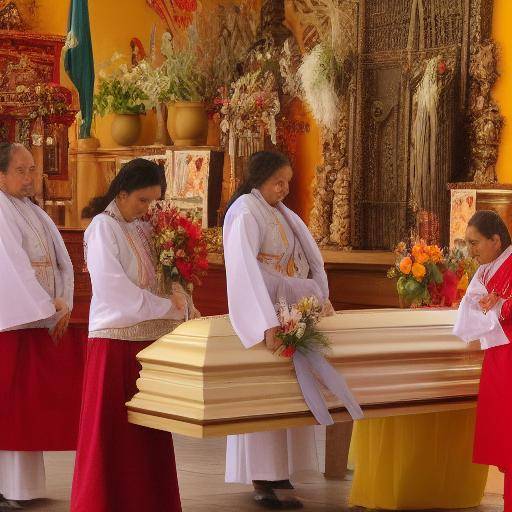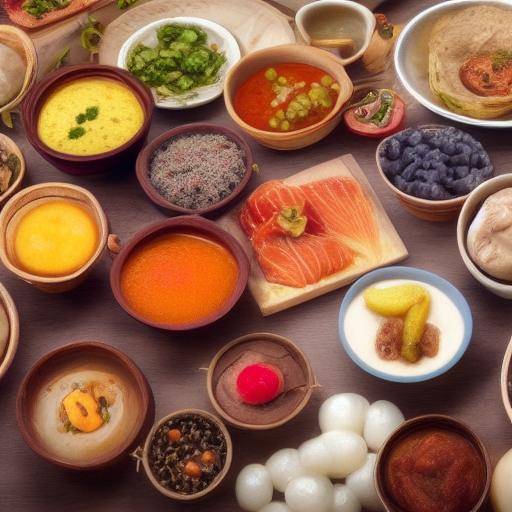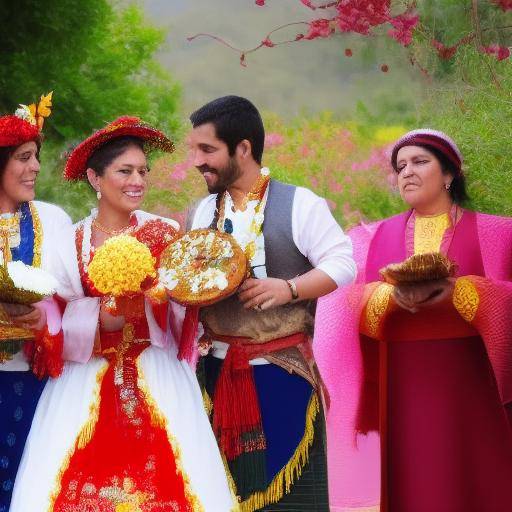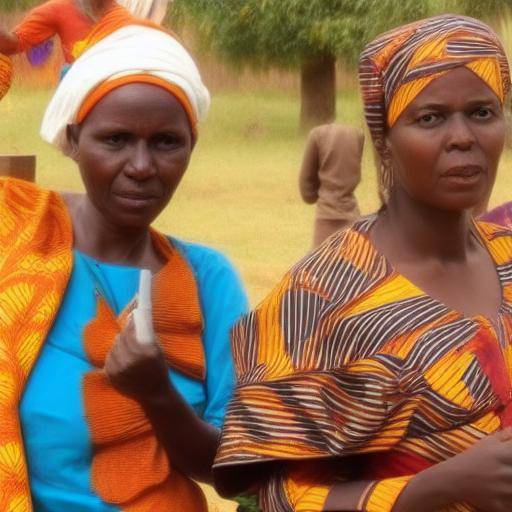
Fertility has been a central theme in African cultures throughout history. African myths and mythology offer a fascinating perspective on fertility, encompassing a wide range of beliefs, traditions and practices that have influenced African societies for centuries. In this article, we will explore in depth the myths of fertility in African cultures, African mythology related to fertility, and the influence of these beliefs on various cultures of the continent. From the perception of fertility as a vital element for the survival of communities to associated ritual practices, we will discover the wealth and diversity of these traditions. In addition, we will address the contemporary relevance of these myths in a globalized world.
Introduction
Fertility has been a subject of great importance in African cultures, where the cycle of life and the relationship with the earth are intertwined with ancestral and spiritual beliefs. Myths related to fertility are particularly relevant in African mythology, as they play a key role in understanding the origin of life, abundance, procreation and connection with ancestors. Over the centuries, these beliefs have shaped the social practices, ritual ceremonies and belief systems of various African cultures.
History and Background
The roots of the myths of fertility in African cultures date back to cults and rituals that celebrated the relationship between human beings and earth, as well as the importance of the reproduction and continuity of the community. These beliefs are intrinsically linked to the traditional African worldview, which highlights the interconnection between humanity, nature and the spiritual world.
African mythology reflects the diversity of beliefs and traditions of different ethnic groups and regions of the continent, but converge in the conception of fertility as a vital principle for harmony and equilibrium in life. Through mythical accounts, divine figures and orally transmitted teachings, stories have been preserved that distill wisdom about fertility and its importance for the survival and well-being of communities.
The introduction of Christianity and Islam in Africa brought with it reinterpretation and in some cases the rejection of myths of the fertility of traditional cultures. However, the persistence of these beliefs in rural communities and the African diaspora attests to their continued relevance in everyday life and ceremonial celebrations.
Analysis in Deep
The African vision of fertility encompasses a holistic perspective that goes beyond simple biological reproduction, including the fertility of land, wealth, prosperity and health. In many African cultures, infertility is perceived as an imbalance that can affect social harmony and community continuity, leading to ritual practices aimed at fostering fertility and the protection of offspring.
The artistic and ceremonial representations associated with fertility, such as dances, ritual masks and offerings, reflect the deep connection between human beings and nature, as well as belief in the influence of the ancestors and supernatural beings in the cycle of life. These cultural manifestations continue to be a vibrant part of African traditions, even in the diaspora, where they have adapted and preserved through contemporary forms of artistic and musical expression.
Comprehensive review
The wealth of African mythology related to fertility is manifested in the diversity of ritual beliefs and practices that vary according to regions and ethnic groups. For example, in Nigeria’s Yoruba culture, Orunmila is the oracle of divination and fertility, while in Ghana’s Akan mythology, the god Nyame is associated with fertility and creation. These mythological accounts have not only been fundamental in the understanding of fertility, but have also enriched African art, literature and music, providing an inexhaustible source of inspiration and meaning.
Comparative analysis
The comparison of fertility myths in African cultures reveals both similarities and significant differences. Although the same fundamental principles of the connection between human life, land and fertility are common to many cultures, diversity in representations of divinities, rituals and symbols demonstrates the wealth and complexity of mythological thinking in Africa.
Gender dynamics and the role of women in relation to fertility also vary among African cultures, showing the multiple perspectives and meanings associated with maternity, upbringing and fertility. While in some cultures women's deities are venerated as symbols of fertility, others carry out specific rituals to promote the fertility of women.
Practical Tips and Accessible Recommendations
Exploring the myths of fertility in African cultures can provide a unique perspective on the relationship between life, nature and the divine. For those interested in entering these traditions, it is recommended to consider the following practices:
- Study mythology and mythical accounts of different African cultures to understand the diversity of approaches to fertility.
- Participate in ritual celebrations and ceremonies to experience firsthand the importance of fertility in community life.
- To support and preserve the artistic and cultural expressions that reflect the myths of fertility, thus contributing to its continuity and appreciation.
Conclusions and FAQs
Conclusions
In short, the myths of fertility in African cultures are a profound and rich manifestation of the connection between human life, nature and the transcendent. These beliefs have persisted over time and remain relevant in the understanding of fertility as a vital and transcendental phenomenon.
Frequently asked questions
1. What are some famous African myths related to fertility?
Some famous myths include the myth of the creation of Yoruba, the story of the goddess of fertility Asase Already in the akan mythology and the myth of the birth of humanity according to the Bantu mythology.
2. What is the role of music and dance in fertility ceremonies?
Music and dance are not only elements of entertainment in African fertility ceremonies, but are also considered means to connect with the divine and promote fertility.
3. How have the myths of fertility influenced contemporary African arts?
The myths of fertility have provided recurrent and significant motives in contemporary African arts, in painting, sculpture, literature and music, giving these expressions of deep symbolic and spiritual content.
4. What is the perception of infertility in African cultures?
Infertility can be perceived as an imbalance that affects social harmony and community continuity, being the subject of rituals and practices aimed at fostering fertility and the protection of offspring.
5. How have the myths of fertility in African cultures adapted to external influences?
The myths of fertility in African cultures have experienced adaptations and reinterpretations against external influences, including the impact of colonialism and the spread of imported religions, being assimilated in various ways by African communities.
6. What contemporary lessons can be drawn from myths of fertility in African cultures?
The myths of fertility in African cultures offer important lessons on the connection between humanity and nature, respect for life and the importance of harmony in the community. These concepts remain relevant in a contemporary world marked by growing environmental awareness and the search for collective balance and well-being.
In conclusion, the exploration of the myths of fertility in African cultures reveals a wealth of ancestral beliefs that transcend mere biological reproduction, encompassing the interconnection between human life, land and transcendent. These mythological traditions offer a fascinating window to understand fertility in its wider context, enriching our understanding of life, nature and spirituality.
With this exploration of the myths of fertility in African cultures, we hope to have offered an integral and meaningful vision that invites us to reflect on the depth and significance of these ancestral traditions.


